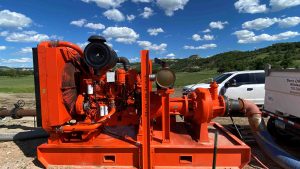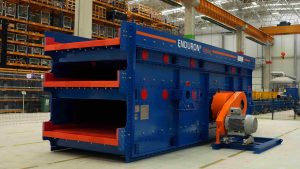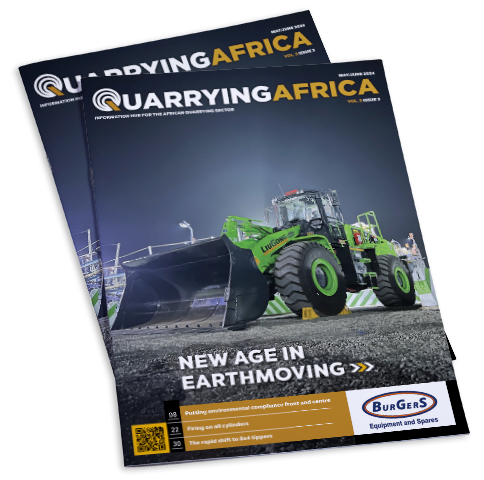As part of its three-decade sustainability journey, AfriSam has over the years championed the use of extenders to reduce clinker content in its composite cements. Through its Vanderbijlpark, Gauteng-based slagment operation, the company has pioneered the use of blast furnace slag, a by-product of the steel industry, to promote more sustainable products in the market.
Since 2008, the South African cement industry has seen a year-on-year reduction in emissions per ton of cement, largely driven by the increased focus on clinker substitution. According to the Association of Cementitious Material Producers (ACMP), clinker substitution rose from 12% in 1990 to 23% in 2000 and a substantial 41% in 2009. The industry is pressing for a 60% rise by 2030.
Over the years, AfriSam has accelerated its efforts to substitute clinker through the development of composite (extended) cements. In 2000, the company launched Project Green Cement to increase the use of extenders to promote more sustainable products. The use of extenders, says Hannes Meyer, executive cementitious at AfriSam, has resulted in a substantial 20% reduction in the company’s clinker factor since 1990.
Composite cements, he explains, contain not only clinker, but other cementitious materials such as pulverised fly ash (PFA) from coal-fired power stations and ground granulated blast-furnace slag (GGBS) from steel-making plants.
GGBS has been used in the manufacture of cements since the second half of the 19th century. Back then, the practice was to intergrind the blast furnace slag with clinker. However, in the 1950s, AfriSam’s slagment operation pioneered the use of separately ground slag for the construction industry.
The use of this product has grown steadily in South Africa, with AfriSam among the frontrunners. The company’s slagment operation plays a crucial role in the production of its composite cements. Established in 1955, the plant was previously owned by three companies, before AfriSam acquired 100% shares in 2004. The raw material is sourced from steel producer, ArcelorMittal South Africa, which is strategically located some few metres away from the plant.
Blast furnace slag has good cementitious properties, providing enhanced strength and durability. By evolving its chemical and mechanical activation methods, AfriSam has achieved a more reactive product allowing the company to progressively replace more and more clinker while retaining high cementitious quality and strength performance.
“Re-using waste products from other industries reduces the amount of limestone that we have to mine and clinker that we have to produce, thus reducing carbon emissions from those processes, as well as minimising waste to landfill,” says Meyer. “We are therefore constantly searching for new extenders and additives to further reduce our carbon footprint and our impact on the environment at large. The end result is less clinker produced per ton of each final product, resulting in less CO₂ generated from our operations.”






